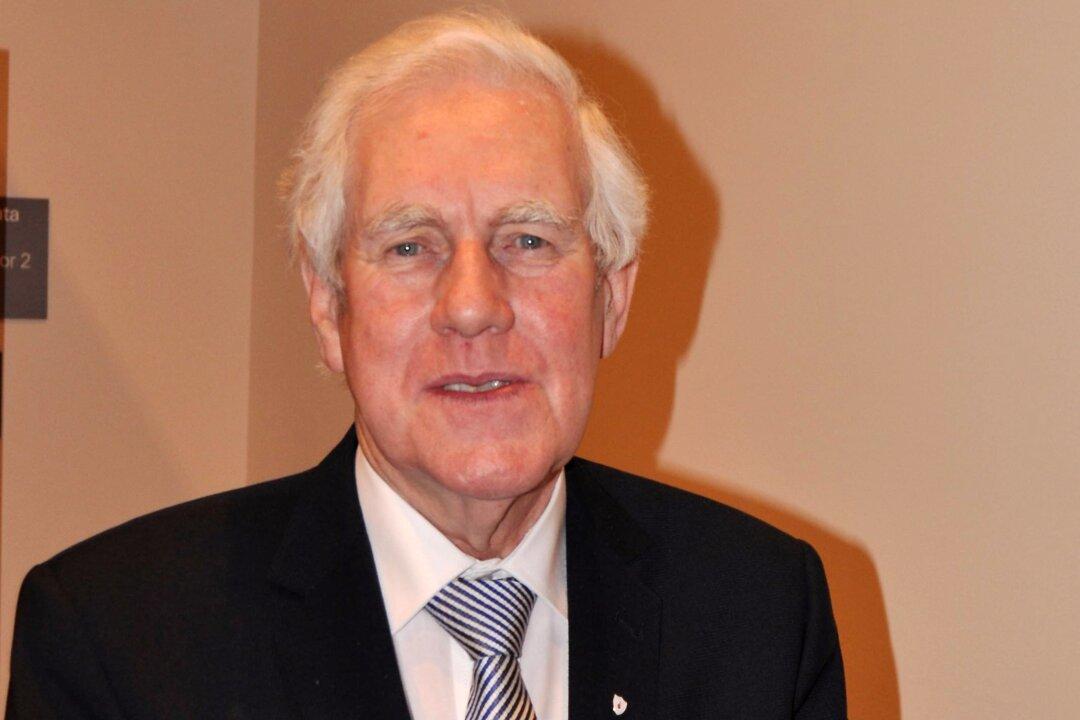Irish aid agencies have been critical of the Government’s decision to slash the overseas development aid budget by another 100 million Euro, resulting in a total reduction of 225 million Euro since this time last year.
The Irish Government had promised that overseas development aid would reach 0.7 per cent of GDP by 2012, the current cuts put us back to 0.48 per cent of GDP (696 million Euro).
Commenting on the current cuts, Minister for Foreign Affairs Micheál Martin said the Government is “committed to resuming the expansion of the aid programme as soon as economic growth has been re-established”.
The Epoch Times spoke with John O'Shea, Chief Executive of GOAL international humanitarian agency, to try and ascertain the impact of the current reductions in foreign aid on their humanitarian efforts.
Mr O‘Shea was still uncertain as to the extent of the impact as the Government has not specified the exact areas where the 100 million Euro cuts will come. “I have asked the Government to have a value for money audit before they do that so the areas where the money is absolutely needed to save human life are not affected,” said Mr O’Shea.
The four prior cuts in overseas aid have impacted GOAL’s work but John O'Shea hopes the Government will analyse the situation closer this time before they take action.
The GOAL CEO was thankful of the Irish public’s generosity in the past and he didn’t want to put anyone under pressure to help beyond their means. “The Irish are an extraordinary generous race when it comes to responding to disasters, emergencies and any form of humanitarian tragedy in the third world or locally.”
The possible reduction in the numbers of experienced qualified people that are badly needed to work in the third world, is an issue for GOAL. “People will obviously want to stay in their jobs while there is a threat to their jobs.
“To get the job done the way we need to get it done in places like Darfur, South Sudan ... you need people who have the experience and ability... these sort of people are very precious to us in the field, so a reduction in their numbers is going to affect us,” said Mr O'Shea.
Mr O'Shea urged the Irish Government to use their money in the most effective way possible at this point in time. “We can always be expecting the Irish public to prop us up during emergencies, over the next few years I would hope that the Government would step in where the Irish people have been so generous in the past.”
It was Mr O‘Shea’s opinion that if the Irish Government could do this and use the money effectively then the problem might not be as acute. Therefore, the economic fallout would not have an effect on the poor as much. “As I have said for many years, routing money through governments that are corrupt and brutal may not be the best way of getting aid to the poor.” Mr O’Shea then suggested that using Irish aid agencies, missionaries and effective UN aid agencies may offer a better way of getting aid to the poor and there may not be the same financial requirement.
The Irish Government had promised that overseas development aid would reach 0.7 per cent of GDP by 2012, the current cuts put us back to 0.48 per cent of GDP (696 million Euro).
Commenting on the current cuts, Minister for Foreign Affairs Micheál Martin said the Government is “committed to resuming the expansion of the aid programme as soon as economic growth has been re-established”.
The Epoch Times spoke with John O'Shea, Chief Executive of GOAL international humanitarian agency, to try and ascertain the impact of the current reductions in foreign aid on their humanitarian efforts.
Mr O‘Shea was still uncertain as to the extent of the impact as the Government has not specified the exact areas where the 100 million Euro cuts will come. “I have asked the Government to have a value for money audit before they do that so the areas where the money is absolutely needed to save human life are not affected,” said Mr O’Shea.
The four prior cuts in overseas aid have impacted GOAL’s work but John O'Shea hopes the Government will analyse the situation closer this time before they take action.
The GOAL CEO was thankful of the Irish public’s generosity in the past and he didn’t want to put anyone under pressure to help beyond their means. “The Irish are an extraordinary generous race when it comes to responding to disasters, emergencies and any form of humanitarian tragedy in the third world or locally.”
The possible reduction in the numbers of experienced qualified people that are badly needed to work in the third world, is an issue for GOAL. “People will obviously want to stay in their jobs while there is a threat to their jobs.
“To get the job done the way we need to get it done in places like Darfur, South Sudan ... you need people who have the experience and ability... these sort of people are very precious to us in the field, so a reduction in their numbers is going to affect us,” said Mr O'Shea.
Mr O'Shea urged the Irish Government to use their money in the most effective way possible at this point in time. “We can always be expecting the Irish public to prop us up during emergencies, over the next few years I would hope that the Government would step in where the Irish people have been so generous in the past.”
It was Mr O‘Shea’s opinion that if the Irish Government could do this and use the money effectively then the problem might not be as acute. Therefore, the economic fallout would not have an effect on the poor as much. “As I have said for many years, routing money through governments that are corrupt and brutal may not be the best way of getting aid to the poor.” Mr O’Shea then suggested that using Irish aid agencies, missionaries and effective UN aid agencies may offer a better way of getting aid to the poor and there may not be the same financial requirement.



